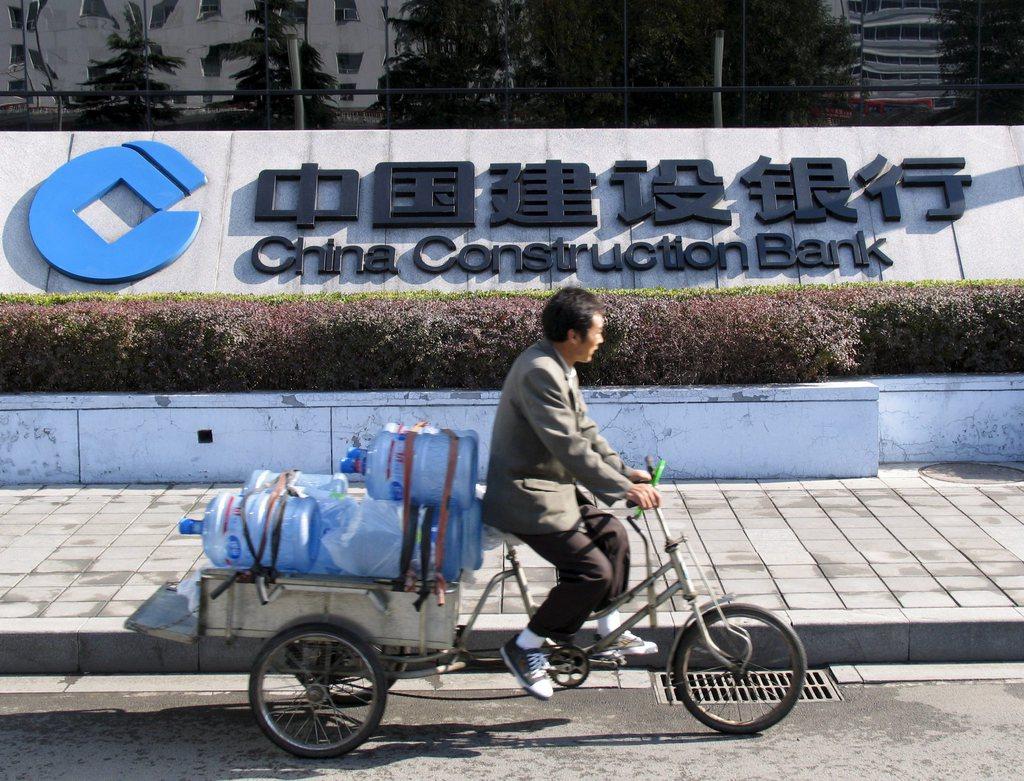Exporters wait to press home China FTA advantage

The Swiss free trade agreement (FTA) with China is showing signs of promise one year after it came into force. But the slowing - and evolving - Chinese economy is keeping traders guessing about how much extra value they can extract from the huge market in future.
The treaty has already been credited with helping smooth the way for the arrival of the China Construction Bank to Switzerland later this year – a vital step towards the Swiss dream of becoming a fully-fledged renminbi trading hub.
Between July 1 2014 and May of this year, Swiss exports to China increased 3% whilst goods arriving in Switzerland from the opposite direction have seen an increase of 4.2%. This outstripped the 0.4% growth of Swiss exports worldwide, according to the State Secretariat for Economic Affairs (SECO).
But how much of that can be down to the FTA which is only just beginning to take effect and has several years to go yet before it is fully operational?
“The main impact is psychological at the moment,” Nicolas Musy, co-founder of the Shanghai-based China Integrated consultancy, told swissinfo.ch. “Tariff reductions for the goods that matter most to Switzerland will be slow – it could take up to 10 years.”
“But the FTA has an immediate impact in generating better dynamics in business relations between the two countries. Swiss and Chinese companies have the incentive to further increase their business.”
The Swiss machinery, precision instruments, pharmaceutical, chemical and watch making sectors are those expected to gain most from eventual tariff decreases.
But there are several hurdles to be negotiated before the export of Swiss goods and services to China can increase 63% in value on 2010 levels, creating annual savings of CHF290 million ($311 million), according to a 2010 Swiss feasibility study.
Not least of these is the future course of the Chinese economy, which is in the process of a significant strategy overhaul in light of a slowdown in GDP growth. The world’s second largest economy grew by 7.4% last year, but this is the slowest rate for the emerging market since 1990, and is expected to tail off even further to 7% this year.
The Chinese government is determined to wean the economy off state-financed infrastructure projects and more towards private enterprises and consumers.
Vincent Affolter, Asia Pacific head of the Swiss gears and cog-making firm Affolter Group, said that orders in China are down compared with last year as businesses wait to see how the reforms will play out.
“The cards are being redistributed and nobody knows who will win: the private or state sectors,” Affolter told swissinfo.ch. “I get the feeling that state-owned players believe that things will stay the same, but China does appear serious about moving the economy on to a new stage. There could be opportunities for the private sector, but there is a certain feeling of insecurity there.”
“The road to rebalancing the Chinese economy is expected to be long and rocky,” noted Kamel Mellahi of the Warwick Business School earlier this month.
But the restructuring of the Chinese economy could also bring big benefits for Swiss firms. “In 2008, when I visited companies they mostly had old machines. This is now changing,” said Affolter. “This is the only major market in the world that is changing from outmoded machinery to an automated manufacturing process.”
Corruption purge
A second process of reform in China – a purge of corruption and gifts among officials – is weighing down on the watch and luxury goods sector. A quarter of all Swiss watch exports go to China or to Hong Kong, where lower taxes on luxury goods attract consumers from the mainland.
Last year, Swiss watch exports declined 3.6% to China (-27% in the last two months of 2014) and were flat in Hong Kong. The first five months of this year have proven volatile with exports down 19.2% in Hong Kong between January and May whilst picking up 8.4% in China.
Nicolas Musy does not expect the FTA to make a huge difference to Swiss watch exports to mainland China. While some tariffs will be reduced, a local tax on luxury goods has not been touched by the agreement. But the Federation of the Swiss Watch Industry believes that China will remain a prime market in the long run, despite short-term volatility, and has hopes that future progress can be made on negotiating China’s luxury tax down.
Another impediment to instant FTA success is the inevitable teething problems of getting new processes and paperwork up and running. The deal is complex and will be phased in over the course of the next decade.
One such hitch soon became apparent when Swiss goods started arriving in China amongst European Union products in shipments from European ports. Swiss and Chinese officials had to smooth out delays caused by customs inspectors trying to evaluate the source of origin of those Swiss goods.
Simon Evenett, a trade expert at the University of St Gallen, believes that non-tariff advantages, such as fast-track customs procedures, have been “over-sold” by supporters of the FTA. “China has put procedures into place to allow Swiss exporters to complain and make their case, but how much that will be worth remains to be seen,” he told swissinfo.ch.
Nevertheless, the Swiss-Sino FTA will bring some benefits to Swiss traders, Evenett concedes. “The trajectory is moving in pretty much the right direction, but not everyone will be happy with the speed,” he said.

In compliance with the JTI standards
More: SWI swissinfo.ch certified by the Journalism Trust Initiative













You can find an overview of ongoing debates with our journalists here . Please join us!
If you want to start a conversation about a topic raised in this article or want to report factual errors, email us at english@swissinfo.ch.